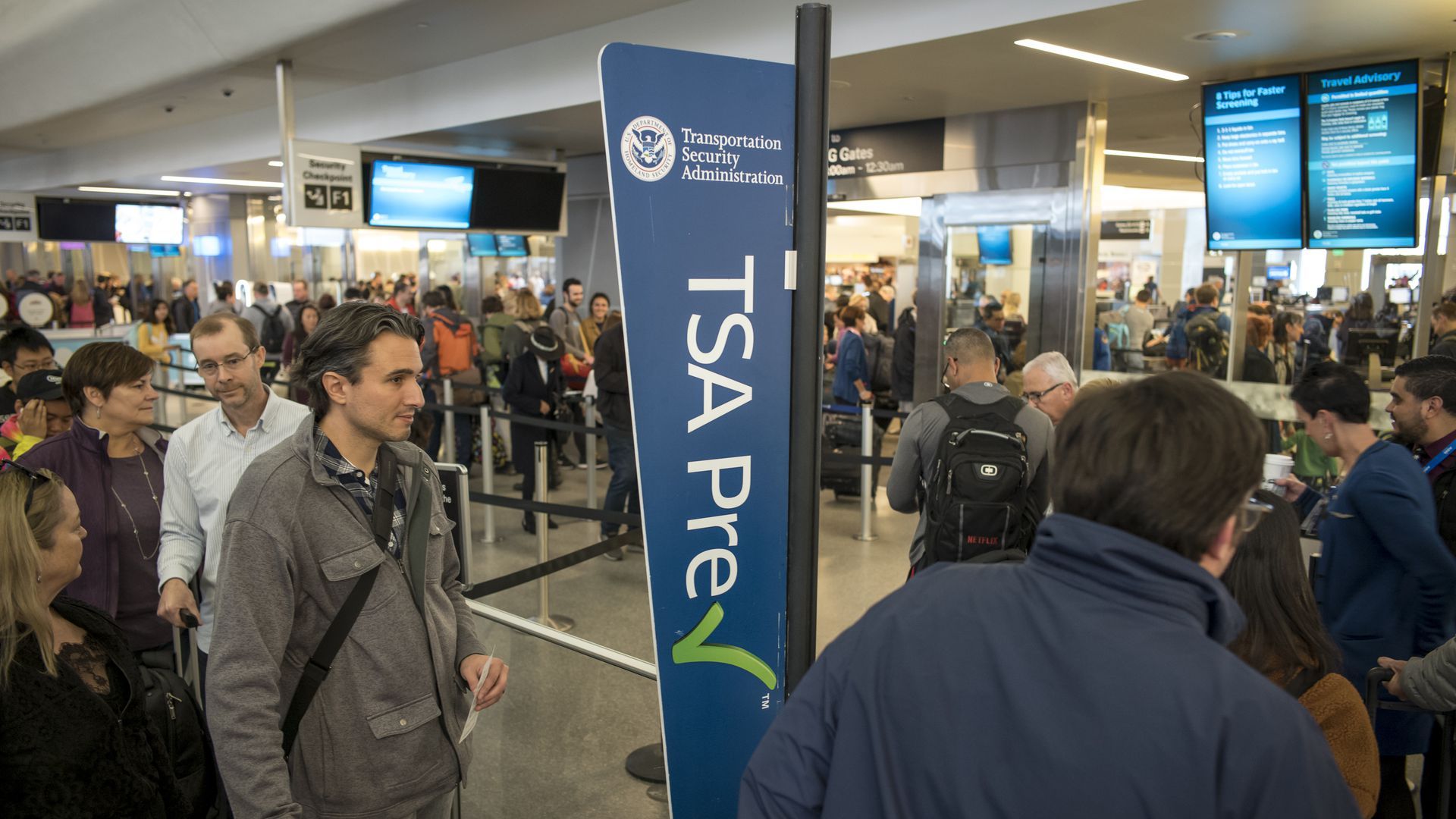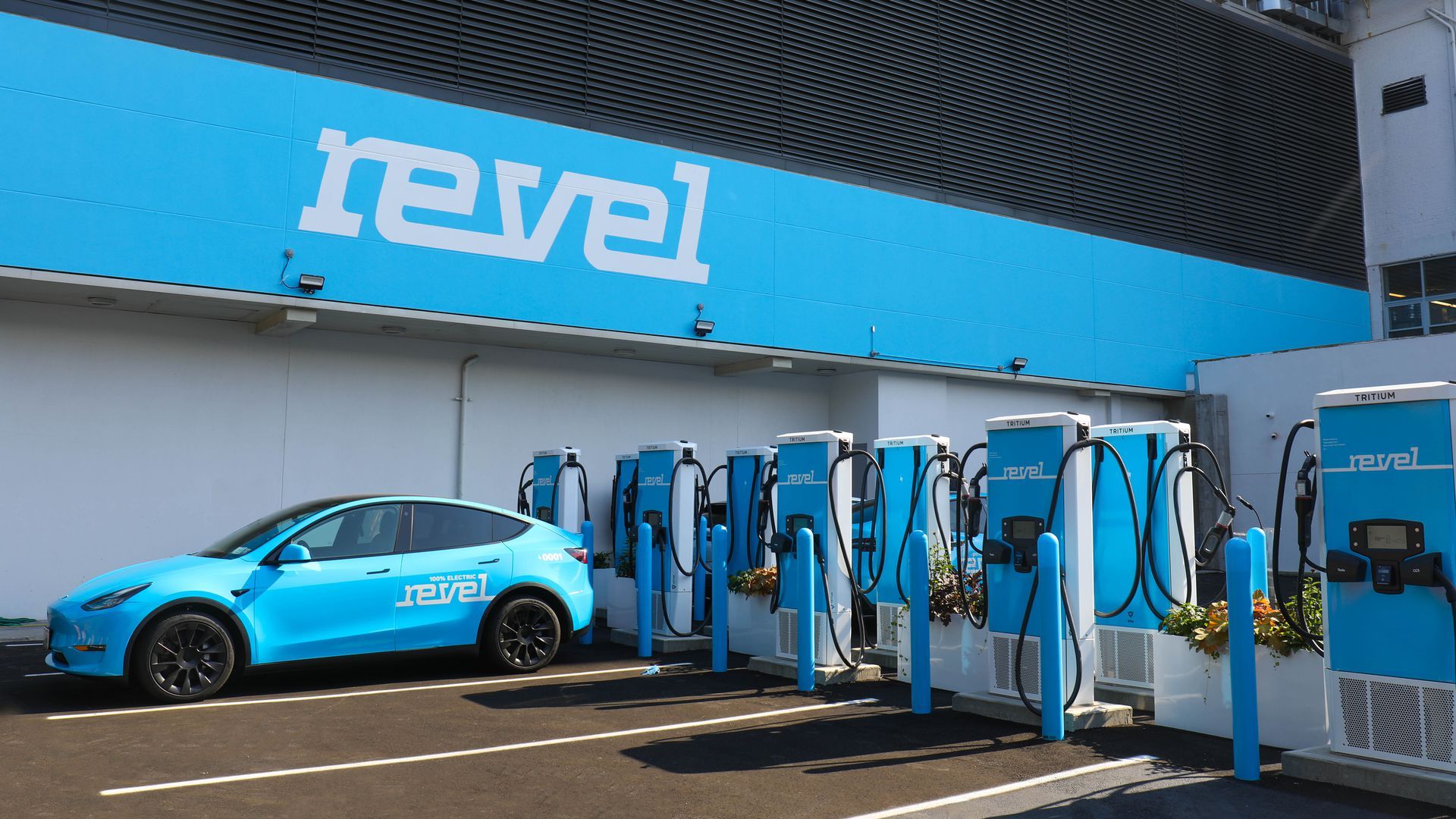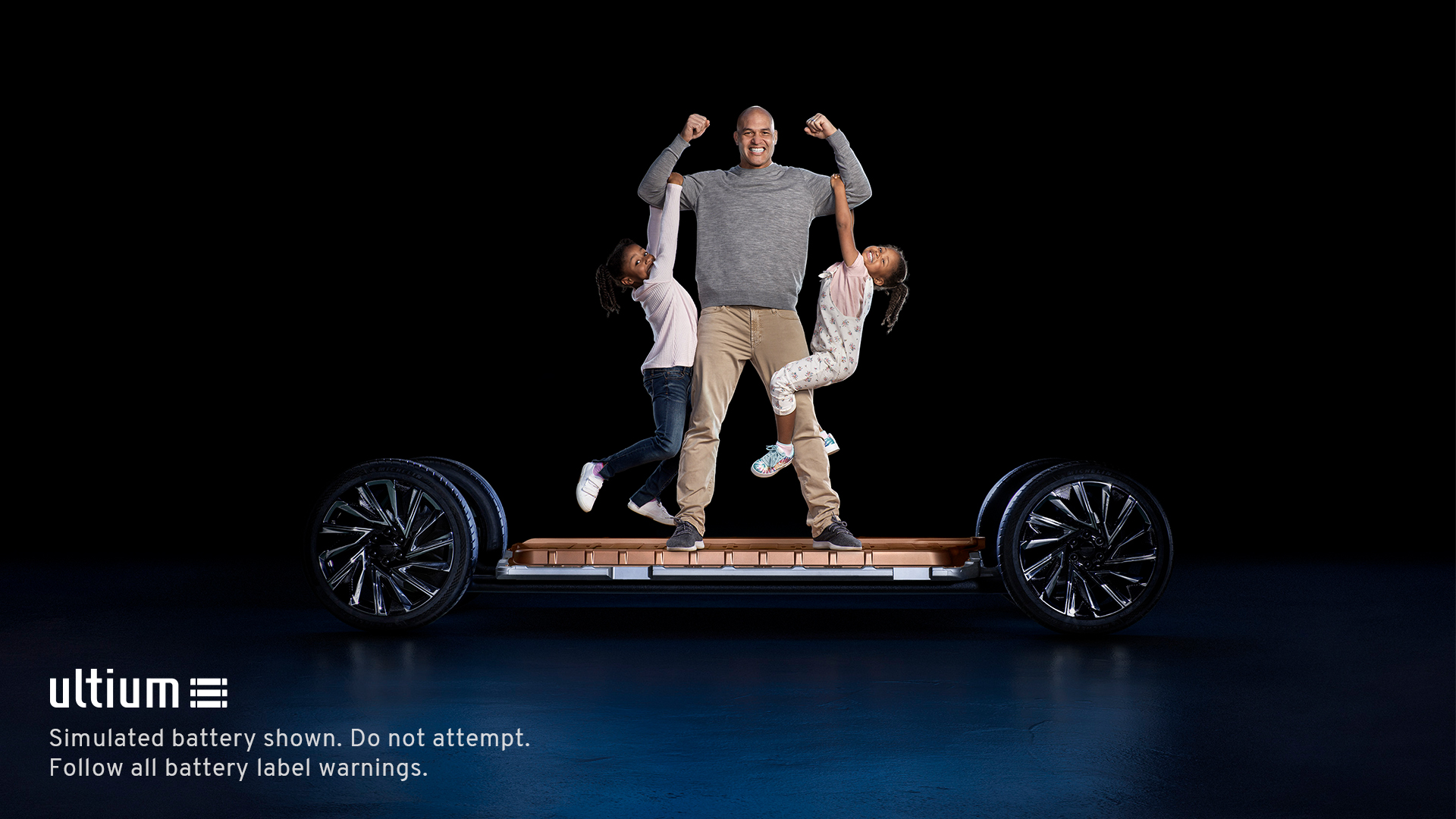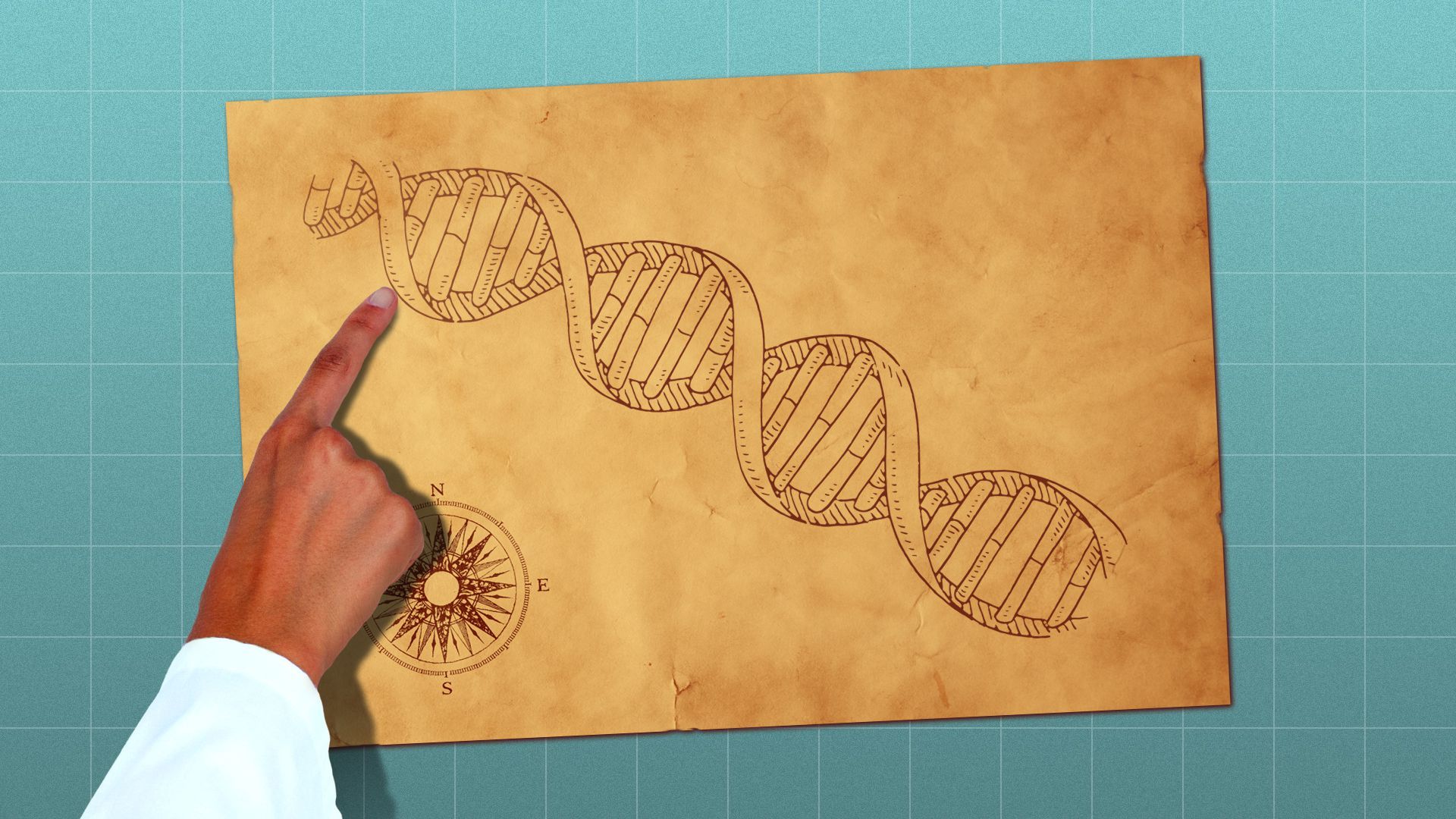| | | | | | | Presented By General Motors | | | | Axios What's Next | | By Bryan Walsh, Joann Muller and Erica Pandey ·Aug 02, 2021 | | Happy Monday (or better yet, Happy Mondays). We have the drawbacks to hybrid work, problematic practices with TSA PreCheck, and a new ride-sharing service. "What was next" trivia: On this day in 1909, the first coin depicting an actual person was issued. Who was on it? - Credit to reader Gary Kreissman for being the first to note that "In God We Trust" became the U.S. motto on July 30, 1956.
- Send your answer, along with tips and feedback, to whatsnext@axios.com.
Today's Smart Brevity™ count: 1,682 words ... 6 minutes. | | | | | | 1 big thing: Why hybrid work is the enemy of change |  | | | Illustration: Sarah Grillo/Axios | | | | Companies around the world are responding to the pandemic-induced rise of telework by transitioning to a hybrid of in-person and remote work. But experts say that model is inherently flawed, Erica Pandey writes. The big picture: Employers haven't been clear with their definitions of hybrid work — whether it means the workforce is hybrid or the workweek is hybrid — and that hasn't allowed workers to make the big changes to their lifestyles that flexible work should allow. - "People have been working remotely, and in many cases, it's great, but they have all this anxiety because they don't know what the plan is going to be," says Greg Galant, CEO of the public relations platform Muck Rack — which started a public pledge for firms to commit to remote work for the employees who want it.
By the numbers: 52% of U.S. workers say they want hybrid work, per McKinsey. And 45% of U.S. firms say they want to pursue such a model, according to a CNBC survey. - That apparent concordance is superficial, however.
- Different models of hybrid work include asking employees to come into the office for part of the week or letting some employees be fully remote while others are working in person. But companies' haven't yet figured out what hybrid work will actually look like for their workforces.
- Some 68% of firms don't have a clear hybrid plan in place yet, according to a McKinsey survey of executives across industries.
- As a result, many companies are handling hybrid work inconsistently, Galant says. "They'll say, 'Remote work [is] great, but your manager needs to approve it,' and then people don't know what their managers will say or what will happen if their manager changes."
Why it matters: Without clear marching orders from their employers, workers can't make long-term plans. - A hybrid model that calls for a few days in the office won't let workers move too far away from the office because they'll have to live within commuting distance.
- And working parents who want to telecommute to care for children will have to find child care for the days they have to go into the office.
- But a model that has some people in the office full-time while others fully remote could fray company culture. The remote employees may feel excluded and even get overlooked when assignments or promotions are handed out.
But, but, but: Hybrid work is better than nothing, so it's worth figuring out how to make it work, notes Stanford economist Nicholas Bloom. - In terms of flexibility, fully remote work is best, followed by hybrid and then fully in-person, but most companies won't be all remote after the pandemic. "Given that fully-remote is going to end soon, that really only leaves the hybrid versus fully-in-person, and for that, it seems clear that hybrid is better," he says.
The bottom line: Companies have accepted that hybrid work is here to stay. Now they need to figure out how it actually works — or risk losing talent. Read the rest. |     | | | | | | 2. TSA PreCheck: Shoes on, privacy off? |  | | | Travelers going through security at San Francisco International Airport. Photo: David Paul Morris/Bloomberg via Getty Images | | | | An effort to expand enrollment in the TSA PreCheck airport screening program is an invitation for government vendors to target passengers with marketing pitches — and those messages could sow confusion and anger, critics worry. Why it matters: TSA PreCheck status lets trusted travelers zip through airport security with their shoes on and electronic devices stored away. That frees up TSA agents to focus on actual security threats, Joann Muller writes. - But newly adopted changes to the program could link those benefits to ads from companies looking to monetize passengers' data.
Catch up fast: The Transportation Security Administration last year hired three companies to help expand enrollment in TSA PreCheck, as directed by Congress under the 2018 TSA Modernization Act. - The companies — Idemia, Telos Identity Management Solutions and Alclear, a subsidiary of Clear Secure — will collect the applications for a fee, but the actual screening will be done by TSA.
- Last month, the Department of Homeland Security said competing providers would have leeway to set their own prices for PreCheck.
Driving the news: Clear Secure, the newly public company best known for its CLEAR biometric screening kiosks at 38 airports and 26 sports venues, already sees a lucrative marketing opportunity. - In documents filed with the Securities and Exchange Commission ahead of its June 30 initial stock offering, Clear called the TSA contract a "significant top of funnel opportunity" and said it planned to bundle TSA PreCheck enrollment with its own CLEAR membership.
- "Our platform is multifaceted and a powerful network of networks. … The larger our member base becomes, the more valuable our platform becomes to our current and prospective partners who utilize our platform to better realize their business objectives," the company's S-1 filing states.
How it works: Clear officials say sign-ups for TSA PreCheck and Clear membership — even when offered at a bundled price — will be separate. - Under its contract with TSA, the company can only use TSA PreCheck enrollment data for PreCheck enrollment purposes, Clear spokesman Ken Lisaius tells Axios.
- "Individuals who enroll in both TSA PreCheck and CLEAR will receive the same privacy protections as all other CLEAR members, as set forth in our Privacy Policy."
Between the lines: Clear's privacy policy states that the company will not "sell or rent consumer personal information." - It may, however, share non-identifiable information with affiliates for a variety of purposes, including product and service offers from marketing partners — but only with the member's consent, Lisaius says.
- "We may present those going through the PreCheck enrollment process with opt-in (check the box) opportunities to receive emails and learn more about CLEAR. These will be completely optional, opt-in and transparent," the company says in a follow-up email, adding that it is collaborating with TSA on the rollout.
- "No TSA PreCheck applicant data will be shared with third parties for commercial purposes unless the applicant allows their information to be shared to receive marketing offers," a TSA spokesperson said in a statement.
Yes, but: Some critics, including a former U.S. official who helped create TSA two decades ago, say Clear shouldn't be piggybacking on a government security program to pump up its business. - "They are building a cake, layer by layer by layer. The customer is very valuable. That should not interfere with an official government-sanctioned program," said Justin P. Oberman, a Chicago consultant and former assistant administrator of TSA at the Department of Homeland Security.
- "It would be like if there were ads for tax prep software on the IRS home page. It's just a bridge too far."
Read the rest. |     | | | | | | 3. All-electric, all-employee ride-sharing service launches in NY |  | | | Revel's fast-charging Superhub in Brooklyn. Photo: Revel | | | | Revel is launching a new ride-hailing service in New York City today that sets itself apart from Uber and Lyft: every car is a Tesla, and all the drivers are employees, Joann writes. Why it matters: Revel's business model will test whether EVs are up to the challenge of nonstop service and whether gig workers are the only way a ride-hailing service can expect to make money. - While Uber and Lyft say they intend to shift their networks to EVs, they've fought attempts by drivers to seek employee status — and the pay and benefits that come with it.
Driving the news: Revel will begin with 50 custom-painted Tesla Model Ys available for pickups and dropoffs below 42nd Street in Manhattan. - Unlike the traditional ride-sharing model, the cars will be owned and maintained by Revel, and they are licensed by the New York City Taxi and Limousine Commission.
- It's launching with 150 drivers and fleet maintenance operators, all of whom will be employees of the company, with guaranteed wages and access to benefits.
- The cars will be charged at Revel's new fast-charging "Superhub" in Brooklyn, which has 25 Level 3 fast-chargers available for public use.
Read the rest. |     | | | | | | A message from General Motors | | An EV for everyone | | |  | | | | General Motors is adding 30 new electric vehicles and producing the revolutionary Ultium Platform. The background: This is made possible by a $35 billion investment in EVs and AVs through 2025 to make the all-electric future accessible for everyone. | | | | | | 4. The genome's uncharted territory |  | | | Illustration: Sarah Grillo/Axios | | | | Scientists have drafted a complete version of the human genome sequence — but the job of deciphering our DNA has just begun, Alison Snyder and Eileen O'Reilly write. Why it matters: The bulk of the human genome is noncoding regions, some of which play an important role in how genes are expressed. New tools are allowing scientists to test exactly how these elements — once called "junk DNA" — work, which could lead to new drug targets. Driving the news: A team of 99 scientists recently completed the human genome sequence, filling in gaps in the draft sequence published 20 years ago using some new technologies. - They reported the human genome is 3.05 billion base pairs long and consists of 19,969 protein-coding genes, including more than 100 newly deciphered genes that can likely produce proteins.
- The completed genome sequence also now has 189 million base pairs of large swathes of highly repetitive DNA that doesn't encode for genes, including 5.5 million base pairs of newly discovered DNA repeats.
- These and other noncoding DNA have been ignored over the past two decades, says Karen Miga, a genomics researcher at the University of California, Santa Cruz who co-founded the consortium of scientists who completed the sequence.
Read the rest. |     | | | | | | 5. 1 good thing: Kids run the bases at Dodger Stadium — via robot | | Hospital-bound pediatric patients were given the chance to run the bases at Dodger Stadium via a telepresence robot, Bryan Walsh writes. What's happening: Kids 14 and under have long been given the chance to run the bases at Dodger Stadium after most Sunday home games — but that's not a possibility for sick children stuck in hospitals. - Recently though, 10 pediatric patients at UCLA Mattel Children's Hospital in Los Angeles operated telepresence robots, made by the startup OhmniLabs, to meet with Dodger players and virtually run the bases — all from their beds.
What they're saying: "Experiences like this are incredibly powerful for patients who cannot leave their hospital rooms or homes because of their health conditions," Kelli Carroll, director of Child Life Program at UCLA Health, said in a statement. Background: Hospital-bound kids have been especially isolated during the pandemic because of concern about COVID-19 spread, and telepresence robots have emerged as a vital point of virtual contact. The bottom line: Technology is at its best when it doesn't replace human beings, but rather augments what they can do. |     | | | | | | A message from General Motors | | An EV for everyone | | |  | | | | General Motors is adding 30 new electric vehicles and producing the revolutionary Ultium Platform. The background: This is made possible by a $35 billion investment in EVs and AVs through 2025 to make the all-electric future accessible for everyone. | | | | Thanks for reading! If this email was forwarded to you, subscribe here! |  | | It'll help you deliver employee communications more effectively. | | | | | | Axios thanks our partners for supporting our newsletters. If you're interested in advertising, learn more here.
Sponsorship has no influence on editorial content. Axios, 3100 Clarendon Blvd, Suite 1300, Arlington VA 22201 | | | You received this email because you signed up for newsletters from Axios.
Change your preferences or unsubscribe here. | | | Was this email forwarded to you?
Sign up now to get Axios in your inbox. | | | | Follow Axios on social media:    | | | | | |









No comments:
Post a Comment